Should You Buy a Car With a Manual Transmission?

Updated February 2019
Is the manual transmission dead? Die-hard auto enthusiasts may shout out: “No way” but is anyone listening? If you’re in the market for a new car, a manual transmission might be a good idea, for a few key reasons.
Even as automatics are becoming more advanced than ever, as shown with lightning fast dual-clutch (DCT) setups or fuel-friendly continuously variable transmissions (CVT), manual transmissions have their place in the automotive world too. If you strive for the maximum level of engagement with a car, there’s no better transmission out there to give you that feeling of total control. Here are a few other reasons why you should consider a manual transmission car.
ITS ALL ABOUT THE BENJAMINS
Manual transmission cars are more affordable than automatics. That’s a fact, and is reflected in the price tag of practically every car out there. Expect at least a $1,000 increase in price when you opt for an automatic transmission, making the choice of a manual transmission car easier on your wallet.
“Cost which is by far the biggest reason that people choose manual,” says Viraf Baliwalla, President of the Automall Network, a car buying service. Viraf conducts new car buying seminars and helps new car buyers with new purchases, to ensure they don’t have an unpleasant or confusing experience.
“Those that are buying their first car or even a subsequent car and want to do so within a smaller budget should consider buying a manual,” Baliwalla says.
SEE ALSO: Is the Manual Transmission Dead?
Additionally, manual transmission repairs are considered to be less costly. Where an automatic transmission rebuild or replacement can cost thousands of dollars, a manual transmission usually just needs a new clutch, which costs from $600-$1500 to repair. Of course, how often you need a new clutch depends on how you drive, and while some manual transmission drivers can go through clutches more often, many can last 100,000 miles or more.
SEE ALSO: Are CVT Transmissions Reliable?
Speaking of budgets, fuel economy used to be a key reason why manual transmission vehicles were considered. When it comes to cars where fuel efficiency really counts, like the 2019 Volkswagen Jetta, the manual transmission has a better highway rating, compared to the automatic model (40 MPG vs 39). Other models see this trend too: the manual-equipped Fiat 500, and MINI Cooper all see better fuel numbers than the automatic models.
The benefit might be short lived though. Newer automatics are geared for better efficiency and have smarter shift-logic which can result in the auto getting better fuel numbers. Almost every compact car, including the Honda Civic, the Toyota Corolla and the Hyundai Elantra have better fuel efficiency when equipped with an automatic.
SEE ALSO: The 10 US States That Still Love the Manual Transmission
MINIMIZING RISK, MAXIMIZING FUN
Another key reason to get a manual transmission car is not only to save gas and money but your actual car. Let’s face it, not everyone knows how to drive a stick-shift, thieves included.
“Of the insurance total losses we processed last year that were related to theft, only 14% were a manual transmission,” says Baliwalla.
Yes, the three pedaled setup is known to stump would-be thieves, and many reports have found cars abandoned by criminals who can’t drive them.
There’s also a feeling of total car control when driving a manual transmission car. A car is placed into gear, and won’t change unless the driver makes it. It means that you will always know what gear your car is in, unlike an automatic, which might have geared up once or twice, and won’t deliver power when you need it.
NOT FOR EVERYONE
There are, of course, some drawbacks to manual transmission cars. Your friends or family might not know how to drive your car. While that sounds more like a blessing, it could turn out to be a problem if an emergency occurs and no one can drive your car in a pinch.
SEE ALSO: Manual Transmission Supra Still Being Considered
Baliwalla explains that transmission topic comes up often with couples looking for a shared car.
“Men tell us that they would be fine with either manual or automatic cars,” he says. “However, for the benefit of their wives that will be driving the vehicle, they would prefer we search for an automatic.”
There are a few more disadvantages to buying a manual car. Often, manuals transmissions are reserved for the most basic trim package. This means if you want a manual transmission, you’ll be left without many luxuries. For example, if you want leather seats, LED headlights, heated seats, an upgraded audio system, and a moon roof, you have to sacrifice the six-speed manual in the 2019 Nissan Sentra. Many other cars get this treatment, such as the Subaru Crosstrek which must be equipped with a CVT in order to get higher trim models.
When it comes to resale value, a manual transmission can be a blessing or a curse. Buyers of that particular car may not want to row their own gears and if you’re trying to unload just such a car, it could be a long wait. Conversely, with fewer manuals on the market, your stick-shift ride could be a hot commodity for the right buyer, who might even pay a premium to get it.
SEE ALSO: Should you buy a car with a DCT Transmission?
Despite advancements in automatics, there are still advantages to buying a manual transmission car. The savings in the purchase price and fuel economy are a significant advantage, but so is the potential theft prevention. Of course, there’s also no greater feeling of man and machine in unison, like a manual car blasting down the street. There’s also a feeling of exclusivity, as not many cars out there are equipped with a manual transmission. With fewer cars being offered with a manual transmission option, maybe now is the best time to get one, since they might not be around forever.

Sami has an unquenchable thirst for car knowledge and has been at AutoGuide for the past six years. He has a degree in journalism and media studies from the University of Guelph-Humber in Toronto and has won multiple journalism awards from the Automotive Journalist Association of Canada. Sami is also on the jury for the World Car Awards.
More by Sami Haj-Assaad



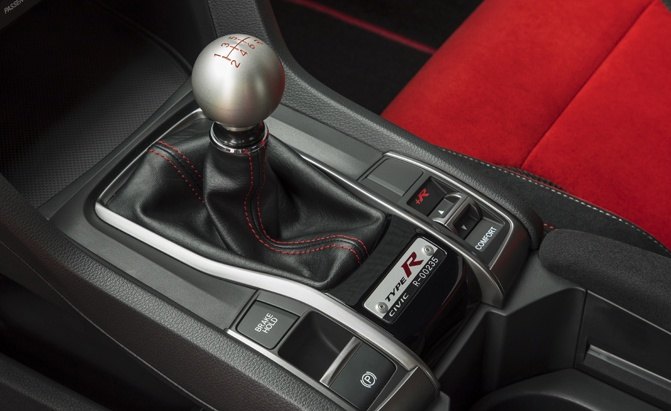



















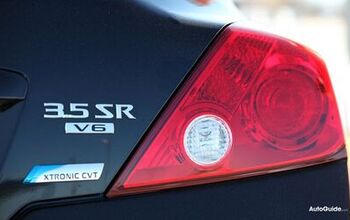
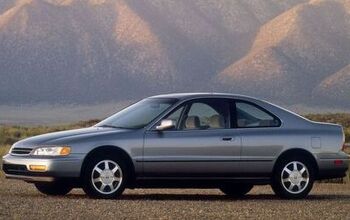
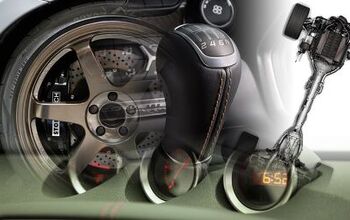
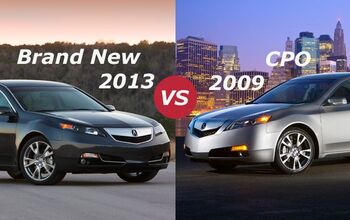
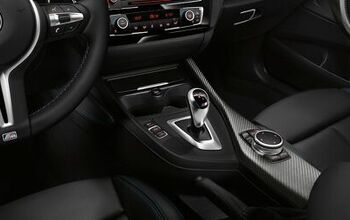


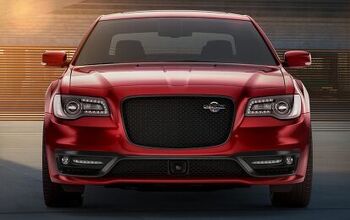
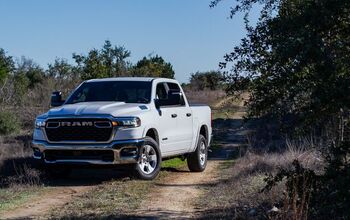

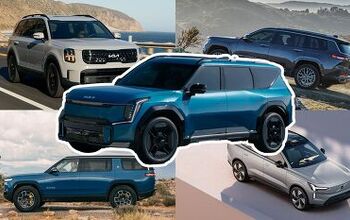
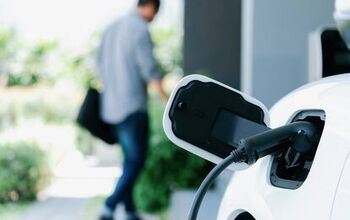
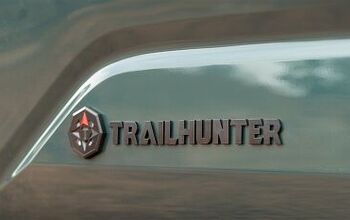
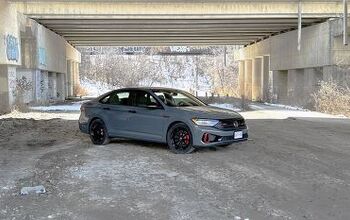
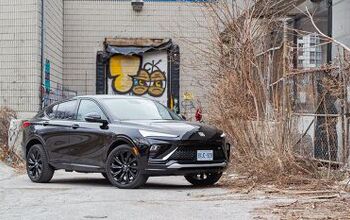
Comments
Join the conversation
There definitely a learning curve to driving stick but it's worth it. The one thing that concerns me is the resell value because it would be more difficult to sell.
Stick shift - Better handling and total control of a vehicle - Low maintanance cost and may be better fuel efficiency - Hard to resale Automatic - Easy to drive - Easy to resale - Higher repair cost Nowadays, more and more people learn to drive at driving school and driving school teach them on an automatic vehicle to make their job easy and safe. So those people usally end up buying an automatic vehicle after passing their driving tests. People who have "learnt to drive"/"been driving" stick, usally get the feeling of having a less control over a vehicle when they drive automatic. It comes down to personal preference about which vehicle to choose. Fully automatic vehicles are just around the corner, You will just have to enter the address and such vehicles will take you to the destination on its own, Forget about the stick, you won't even have to touch the steering wheel. What I am trying to say is that most of the people, prefer a type of vehicle to drive is based on which vehicle they have driven initially when they started driving. (in most cases)